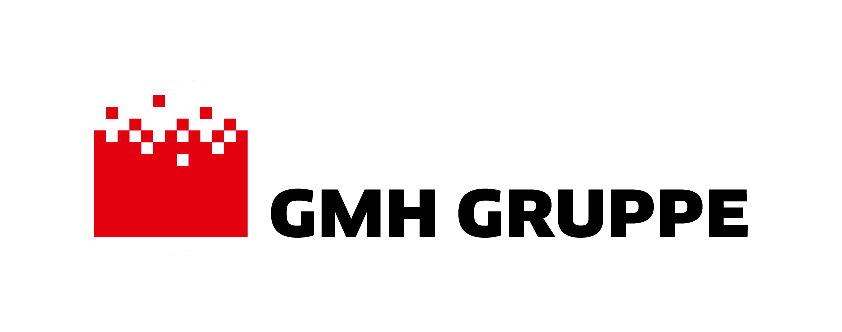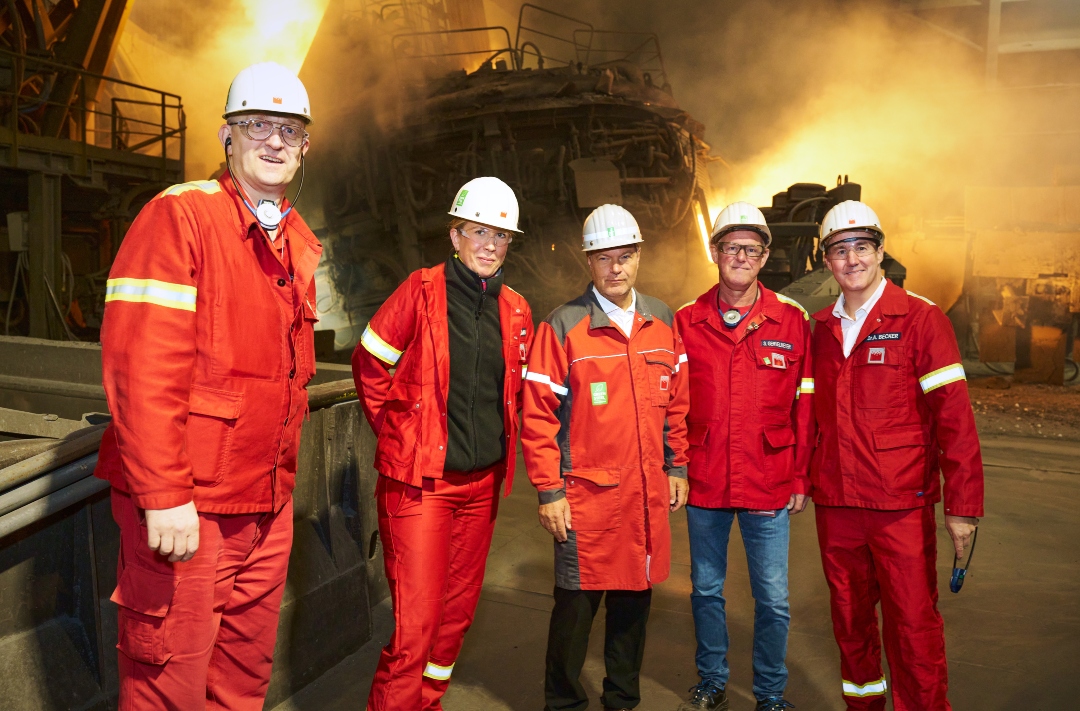
Germany’s Economy Minister, Dr Robert Habeck, visited GMH Gruppe’s steel-production facility and saw for himself how the group’s energy supply is gradually being converted to electricity and renewables.

GMH Gruppe continues to have its sights firmly set on climate targets: Just a few months after commissioning the first induction quenching and tempering plant for individual bars (EVA I) in Georgsmarienhütte in February, the company has already given the go-ahead for the construction of the second electrically powered quenching and tempering plant for the heat treatment of steel bars (EVA II). This is scheduled to go into operation at the end of 2026.
“With the expansion of inductive single-bar tempering, we are increasing the sustainability component of our production, and at the same time broadening GMH Gruppe's product portfolio. The new tempering systems, and the associated switch from natural gas to renewable electricity in the heat treatment of the steel, will save well over 50,000 tonnes of additional CO2 over the next ten years”, comments Dr Alexander Becker, CEO of GMH Gruppe.
Around 17,000 tonnes of steel per year can be processed by a single heat treatment line at GMH. While EVA I is set up to process bars with a smaller diameter of 20 to 60 mm, similarly designed EVA II, which is expected to be completed by the end of 2026, will be intended for the heat treatment of steel bars between 35 and 100 mm in diameter. When fully operational, the two plants together will be able to heat treat a total capacity of 35,000 tonnes of steel using electricity. The current single-bar heat treatment enables the production of highly durable key parts, such as screws and connecting elements for wind turbines, conveyor systems in industrial applications, as well as steering rods for all automotive segments and also individual components for the defence industry.
The investment volume for both plants together amounts to 21.5 million euros. The public sector will provide 2.2 million euros for this important step in the further transformation of steel production at GMH Gruppe. EVA I was subsidised with 0.88 million euros from federal and EU funds in 2023. GMH Gruppe is now receiving support totalling 1.32 million euros for EVA II. Both projects are funded by the Federal Ministry for Economic Affairs and Climate Protection via the “Decarbonisation in Industry” programme. This also uses funding from the EU fund “NextGenerationEU” and is managed by the Competence Centre for Climate Protection in Energy-Intensive Industries (KEI).
Germany’s Economy Minister Dr Robert Habeck, who visited Georgsmarienhütte on Thursday morning, had the details of heat treatment explained to him during a plant tour of the first single-rod tempering plant to be installed. He symbolically handed over a cheque to the GMH Gruppe management for the latest installment of funding: “We want electricity to be used for production instead of coal, and for this electricity to be generated from renewable sources wherever possible. Georgsmarienhütte took the lead 30 years ago as a family business, without public funding, and started to install the technology that will become standard today. I would like to thank GMH Gruppe for working so relentlessly on the future, on automation, on new energy-efficient processes, and for forging ahead, despite all the adversity.”
Dr Alexander Becker, CEO of GMH Gruppe, explained: “We are grateful for the political recognition of our continued efforts towards climate-friendly steel production by the Federal Ministry for Economic Affairs and Energy, and for the joint funding of the new single-bar tempering system by BMWK and KEI. We are aware of our pioneering status and will continue to consistently pursue our path towards almost climate-neutral steel production by 2039. This transformation, which we are largely managing from our own resources, is right and necessary. Affordable energy is not just about keeping costs down; it's about paving the way for a sustainable and competitive future for Germany.”
On the road to climate neutrality, GMH Gruppe has set itself the goal of halving the greenhouse gas emissions of its steel production by 2030. This is being realised via a targeted roadmap that envisages savings in several areas. The electrification of production will save the group a total of 360,000 tonnes of CO2 by 2030. The switch in energy supply from coal and gas to biomass and hydrogen, which is underway at the same time, can reduce CO2 emissions by a further 65,000 tonnes.

Senior Editor & Senior Account Manager
Beitrag teilen